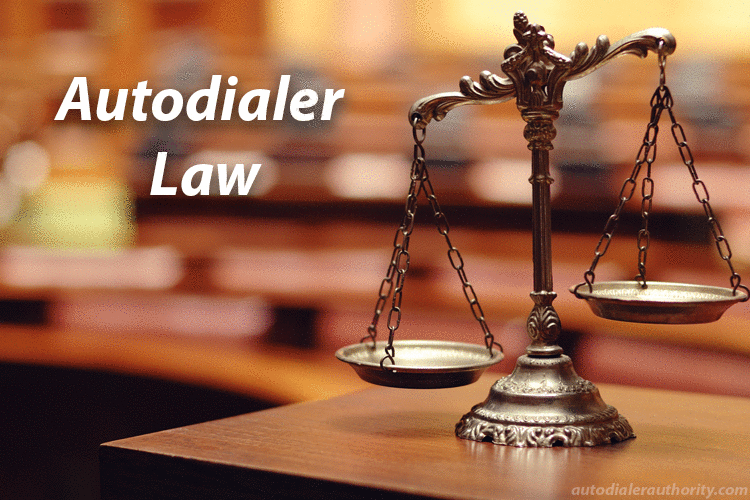The laws surrounding autodialers, predictive dialers, and robodialers are dense and convoluted depending on what state you are located in, and what type of business you are running. As a call center or business who implements a autodialer for use in your business, it’s important to ensure that you are in compliance with the FCC (Federal Communications Commission), the TCPA (the statute and the limitations), as well as the FTC (Federal Trade Commission). There are also fifty state attorney generals who share date amongst each other and combine their resources to prosecute autodialer violators. The BBB has even began to work with law enforcement and upload complaint data about companies who use automated dialers to the various governmental organizations.
There are amended TCPA rules that went into effect on October 2013. Which requires written consent from the parties you are calling in order to stay compliant. Before you begin looking into the legalities of calling individuals, it’s first important to determine what exactly qualifies as an autodialer. You can read the full statement provided by the FCC here as to what is classified as an autodialer, also known as a “automatic telephone dialing system” or ATDS. Read the full definition here: FCC-15-72A1.doc – Federal Communications Commission
What damages are possible under the new TCPA ruling?
If a recipient of a call can prove that the call (or in some circumstances, texts as well) was made using an autodialer, then they are eligible to receive between $500 and $1,500 per call, depending on certain circumstances surrounding the call or text. Call recipients have attempted to cash out on companies calling them in the past, some have met more luck than others. The statue of limitations is four years, with an uncapped action damages, meaning that business could potentially payout huge liability settlements if they are found in violation. President Obama was even found to be in violation after his re-election campaign was targeted with a TCPA lawsuit.
Under the TCPA, individuals who receive unsolicited cellphone calls and text messages can recover between $500 and $1,500 per call if they can prove that the calls or texts were sent using an “autodialer.” The limitations period is four years and class action damages are uncapped, meaning that a company with a business need to call or text its customers can easily face millions or billions of dollars in potential liability.
What is Federally prohibited when using autodialers?
Any type of automated dialing that results in a pre-recorded message. This can be ignored only in very certain circumstances. If the call is not considered telemarketing (based on the interpretation by the FTC) then that counts as an exception and you’ll be able to use prerecorded messages. You should always be aware that just because it is legal on the federal level does not mean that it will be in compliant with the legislation of your specific state.
What do you need to do in order to stay compliant?
If you’re using pre-recorded messages you must provide the recipient the ability to opt out from receiving future calls. This can be done by allowing the recipient to press number to opt-out, or via voice recognition when they speak into the phone and request to be removed. Depending on your business, you may also need to inform the recipient that the call is being recorded, or may be stored in a database. There are other disclosures that you may need depending on your business and call reasons, and you should consult an attorney in order to ensure you are fully compliant.
If you’re looking for more information about Autodialer Law, you can watch the webinar created by the Youtube Channel Call Center Compliance, which hosts legal webinars with various lawyers to discuss call center laws and regulations.
